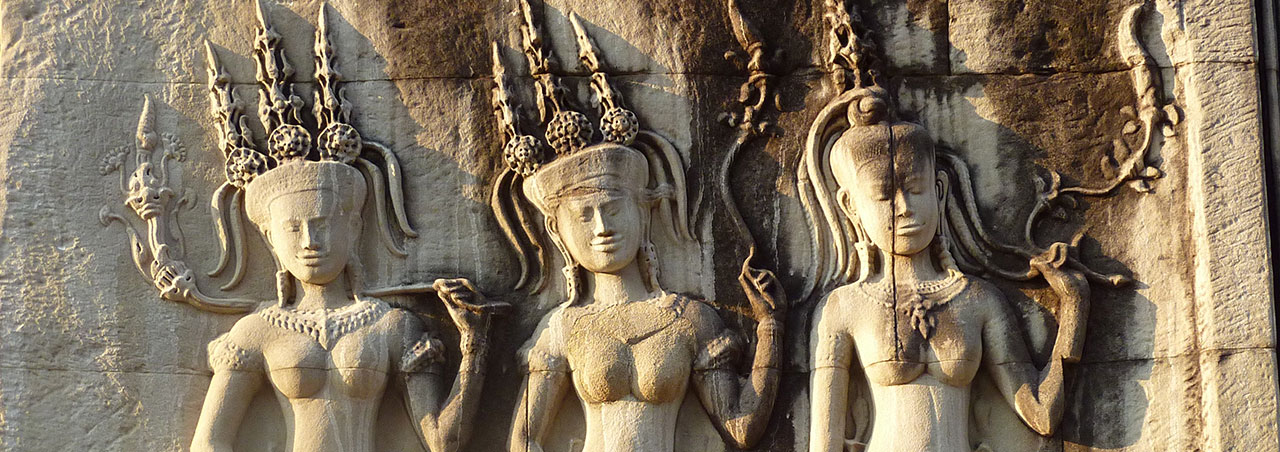Response to a question on a List:
How do you access your mind. Thoughts are like waves and the mind is like the ocean. How do you access the ocean?
Looking at your question, I will respond in three parts:
– How do you access your mind?
– Thoughts are like waves and the mind is like the ocean – which is a mahamudra teaching.
– How do you access the ocean?
How do you access your mind?
So how do you access your mind? As a previous respondant mentioned, there are many practices you can take up which will help you to become aware of your mind. Anything which encourages that, whether formal like yoga or meditation, or informal like just relaxing in a bath without doing anything will have something of this effect. If our usual tendancy is to be caught up in what seems like the outside world, the various spiritual practices tend to specifically point you toward awareness of the mind.
In a sense, the answer is not difficult. Your mind is there all the time, and you only have to stop being caught up in the affairs of the world for a moment, and awareness of your mind is right there. The mind is directly accessible, at any moment. But of course for many of us the distractedness and attraction of ‘out there’ is very great. So any practice which encourages the turning of the attention ‘within’ will gradually encourage awareness of the mind, and gradually make that easier to attain and maintain.

Thoughts are like waves and the mind is like the ocean
This teaching have many levels, but directly relevant to your first and second questions, once you have begun to ‘access’ your mind, to become aware of it, rather than the ‘outside world’s affairs’, then you will notice a number of things about the mind. One aspect which may become apparent is that there is an endless array of thoughts which arise in mind. They are about past, present, and future, about ourselves and the ‘outside world’ and they seem to be endless. Also, we may begin to reflect about where they come from and where they go to.
In the teaching, it is said that mind itself is like an ocean, and the thoughts are the waves on the ocean. That metaphor points to a number of things. One is that the thoughts are not different in nature to the mind itself – waves are of the same ‘stuff’ as the ocean. So, thoughts have the same nature as the mind. As we look deeper, we may see that thoughts are empty – they are elusive and ungraspable – as we turn awareness on them, they just melt into insubstantiality before that awareness. And yet, they appear to arise. And so all that arises in mind has this nature, of being empty, yet appearing to arise.
When we look at what mind itself is, that which the thoughts arise out of, we also find that it is empty, it is elusive, that there is nothing for us to grasp onto. But, there seems to be awareness, luminosity, a sense of being able to know, or experience. So again, it’s empty, yet seems to appear.
So the metaphor points to the thoughts and mind being of the same nature, (amongst other things).
How do you access the ocean?
Your final question suggests a desire to become aware of mind itself, rather than the thoughts that appear in mind. What is mind itself? That is something which needs establishing though practice, rather than something described and believed in. Yet, we can perhaps usefully say that in one way, our practice is simply to be aware of our mind in general. That is, of our thoughts, of whatever is there when thoughts have stops – however mind is, then just be aware of it. There is no need to judge thoughts as bad, and only want to have a mind without thoughts, and to just access that still mind, but just keep bringing awareness to mind, however it is. And with that awareness, see how mind is? So not thinking about it, but just seeing – is it like this, like this, how is it? And then knowledge of mind and it’s thoughts, the ocean and the waves will arise.
Shamatha and Vipassana
One final point worth mentioning. This accessing or awareness is taught as a two stage process. First, one must cultivate stillness, or shamatha, as without stillness of mind, one will not see very much, or gain realisation, or liberation. Then, on the basis of that stillness, and clarity, one is able to look deeply into minds nature, and realisations can then arise, and liberation becomes possible.
So many of the practices of Dharma help develop this stillness without which no progress is possible, and many others are then useful to look deeply into the nature of mind, and lead to liberation. Both are needed, and neither is more important than the other.
I hope this might be of help. I’ve developed your short question in a way which makes sense to me, but am not sure if that is the direction your required?
best wishes in the Dharma,


